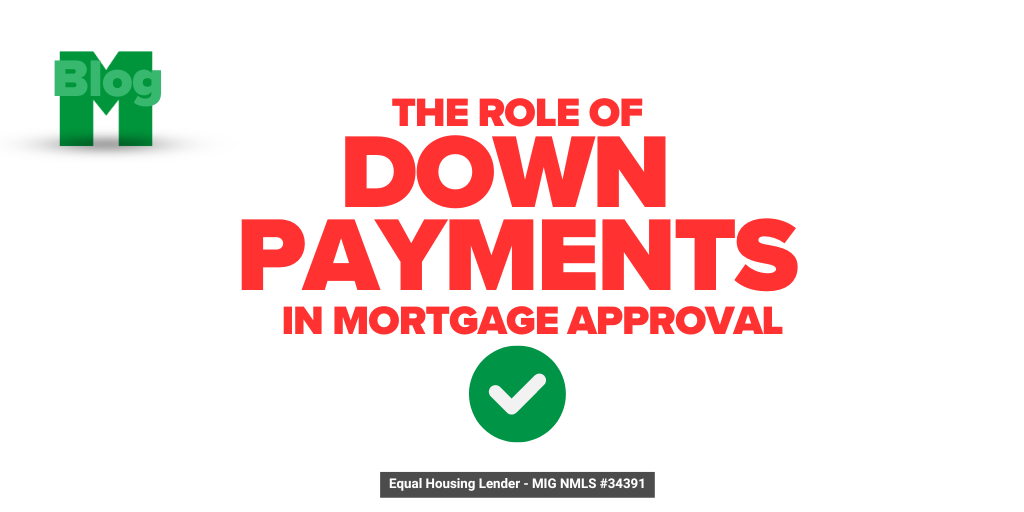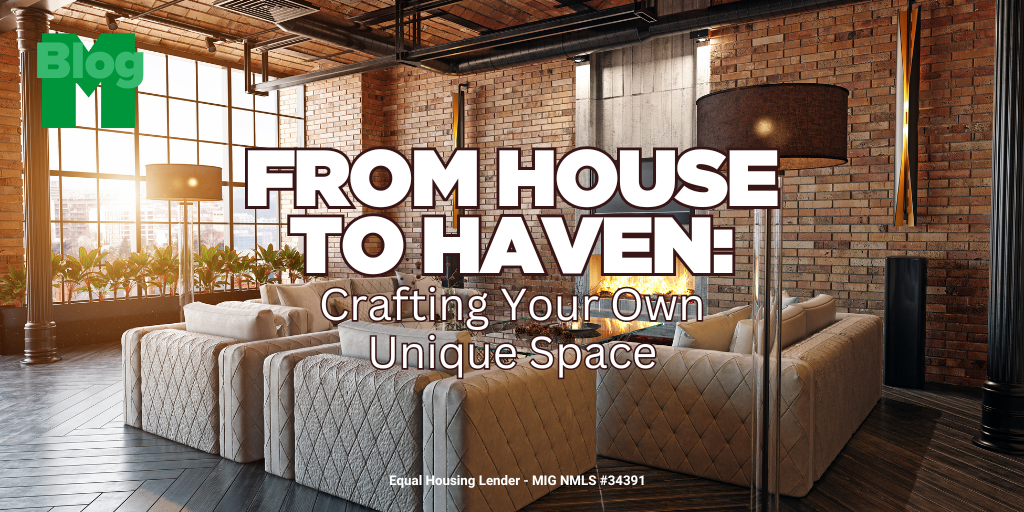
Down payments are essential in mortgage approval but aren’t the only factor. Saving money to invest in your home is important, but so is keeping money aside for emergencies.
Owning a home is a big responsibility, so knowing the difference between a large and small down payment and how it affects your approval is important.
What is a Down Payment?
A down payment is your investment in a home. It’s a percentage of the home’s sales price and is cash you put down in addition to the money borrowed as a mortgage. The down payment takes some of the risk off of lenders because you have your own money invested, which means you have more at stake and are more likely to make your payments.
Why do you Need a Down Payment?
A down payment shows lenders two things – you are good at saving money, and you are invested in the home you’re purchasing. If the bank were to put all the money into the house, giving you 100% financing, what motivation do you have to make your payments if things get tough financially?
The down payment is like the lender’s insurance; it shows that you’ll follow through on your mortgage agreement and make your payments, or you risk losing the money you invested. They consider it your ‘skin in the game.’
How Much of a Down Payment Do You Need?
The amount of down payment you need depends on the type of mortgage you apply for and your qualifying factors. Each loan program has its own set of requirements. Discuss the required down payment with your loan officer.
It’s also a good idea to play around with the numbers. In most cases, you don’t have to put down the maximum down payment. Each loan program has a minimum requirement, and sometimes that’s enough. Putting down a larger down payment may only make a few dollars difference in your monthly payment, but it puts a larger dent in your savings.
Look at different scenarios to see which makes the most sense. For example, if you want to avoid Private Mortgage Insurance, you may want to consider a larger down payment. This can be good for people purchasing a home for the long term. You may also consider a larger down payment if you have other ‘riskier’ qualifications, so you are still a good candidate.
What do Lenders Look at for the Down Payment?
When you tell a lender how much money you’ll put down on a home, they don’t just take your word for it. You must prove you have the funds.
They’ll ask what account the funds will come from and then will require the last two months of statements from that account. They’re looking for seasoned funds or funds that belong to you and aren’t a loan.
They start with your bank or investment statements to track the source of the funds. Is it money you’ve saved over time from your income, or was it a large influx of money you recently received?
If you recently received a large sum of money, it’s a red flag for lenders, and they’ll need to track the source. They’ll look closely at your credit report to see if you have recent inquiries for loans besides the mortgage or if you have newly opened credit accounts. They’ll also ask questions about any large deposits, requesting proof of their origination if the credit report doesn’t solve the mystery.
For example, if your parents gave you $20,000 to buy a house and you deposited the funds in your account, lenders won’t accept it. They need the proper channels followed, including:
- A gift letter: This is written by the person who donated the funds to you, sharing the gift details. The letter must include the amount they offered, the date, the purpose, and a statement that the funds are a gift, not a loan.
- Proof of funds origination: The lender will also need proof of the funds origination from the donor, including a check written to you for the exact amount stated in the letter.
- Proof of deposit: You must then prove that you deposited the check in the account you’re using to make the down payment.
What Other Factors Do Lenders Consider?
The down payment is a large factor in securing a loan approval. The larger the down payment, the more flexible lenders may be about other qualifying factors. That doesn’t mean you can have terrible credit or inconsistent income to qualify, though. Here’s what they consider:
- Credit scores: Lenders first consider your credit score when you apply for a loan. Each loan program has a minimum required credit score that you must meet. However, the higher your credit score is from the minimum, the better your chances of approval and getting a lower interest rate. For example, FHA loans require a 580 credit score, but that’s still risky for lenders. If you have a 680, you’ll get much better terms, and they won’t care as much if you only make the minimum down payment.
- Income: Consistent income is a requirement for any loan. It’s how you prove you can afford the loan. Typically, this means you need a job; most loan programs don’t allow alternative income sources unless you are self-employed. You must prove you have a regular income and enough to cover your current debts, plus the new mortgage.
- Debts: Lenders calculate your debt-to-income ratio to ensure you only have debts that you can afford. An ideal DTI is 43%. This means your debts (including the new mortgage) don’t exceed 43% of your income before taxes. The lower your DTI is, the lower the down payment you may need.
- Employment: Lenders look at your employment history, looking mostly for a 2-year stable history. They don’t want borrowers that hop from job to job as that’s risky for the lender. Gaps in employment mean you could have trouble affording the mortgage in the long run.
Does a Bigger Down Payment Mean You Can Buy a Bigger House?
A bigger down payment isn’t the only reason you’d be approved to buy a house. As we said above, lenders look at many other factors. You could have the largest down payment saved but not have consistent income or have a credit score below the required score, and you wouldn’t qualify.
Does a Large Down Payment Make Sense?
Determining if a large down payment makes sense for your situation is important. While a larger down payment may make getting approved for a mortgage easier, it may not make financial sense for you.
Here’s what to consider:
- Are you depleting your savings? A large down payment may help you get better rates and terms, but if you’re running your savings dry, you could do yourself a disservice. Try keeping 3 – 6 months of mortgage payments as ‘reserves’ should your income stop unexpectedly.
- Are the terms better? A larger down payment doesn’t automatically mean a better interest rate or more attractive terms. Look at the difference between investing a large sum upfront and financing a larger amount.
- Does the larger down payment help you get approved? Sometimes, a larger down payment can be a compensating factor, allowing you to get approved even if one of your qualifying factors is worse than what a lender may want.
Final Thoughts
Knowing the right down payment for mortgage approval is important. Fortunately, you can discuss different options with your loan officer and see how they change your approval, payment, and long-term costs.
If you’re investing in a home, you’ll own long-term, investing a large down payment may make sense. But if it’s a shorter-term investment or you don’t have much ‘extra money’ set aside, a smaller down payment may be in order and won’t risk your loan approval.



